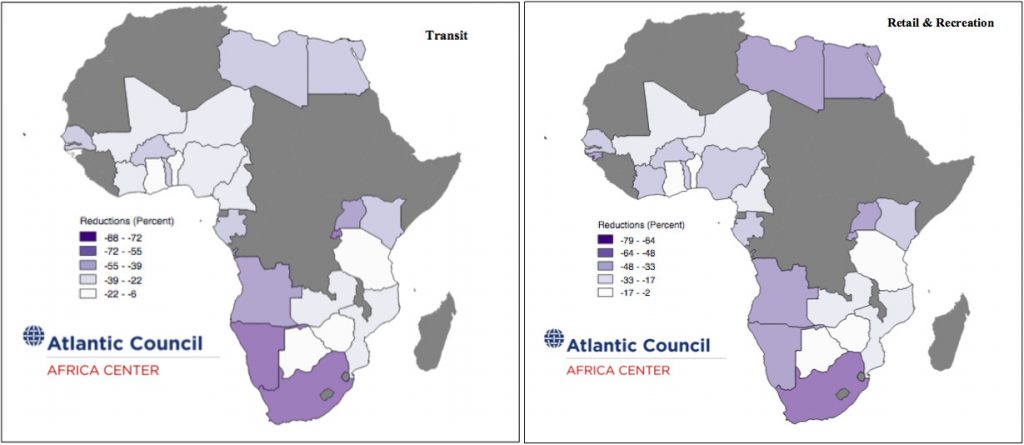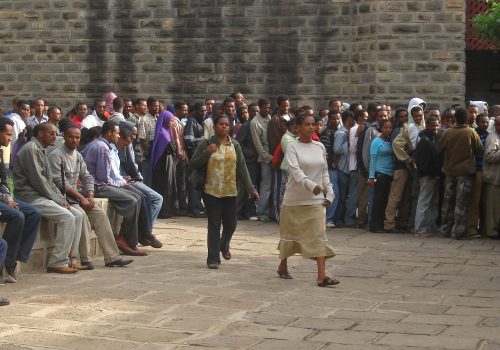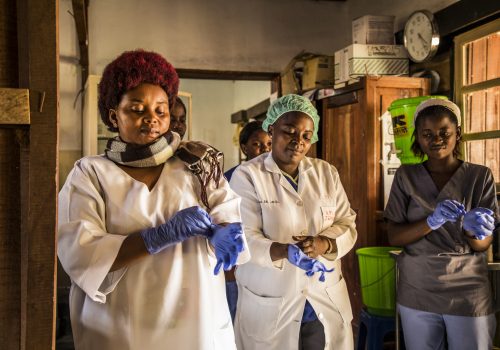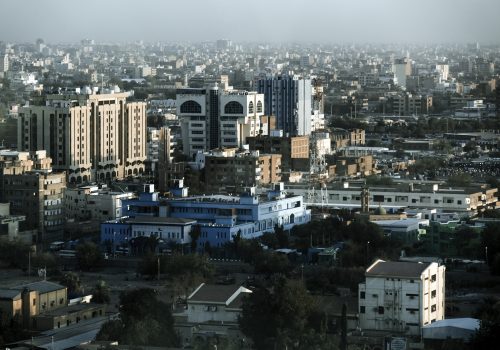Using Google reports to estimate Africa’s response to COVID-19: Key findings
On April 2, Google published community mobility reports, showing how citizens across different countries and regions are adapting their movements to the coronavirus. By graphing this data, we get a unique glimpse into the state and diversity of African responses.

Google’s reports utilize anonymized user location data and compare movements against a recent baseline, with reports tracking mobility associated with retail & recreation, transit stations, grocery & pharmacy, parks, work, and residences. Based on the sampling, it is worth noting that in the African context these reports are likely to be most representative of urban areas, especially capitals and principal cities. Thus, the data must be taken with a grain of salt. But at the same time, these urban areas are the locales in which governments are most capable of enforcing social distancing, and thus the information is still relevant.
It is also clear from above that not all countries are included due to minimal data. As updates and additions come in, attempts will be made to update this blog intermittently. For reference, the current data and graphs account for data through March 29. This means that the impact of lockdowns in Botswana and parts of Ghana and Nigeria, among others, will not yet be apparent. As a snapshot from March 29, though, the data still gives some insights into which countries have been most proactive and the extent to which existing lockdowns have been effective. Below are some initial findings:
Lockdowns are having an effect
South Africa stands out on the map as having significantly reduced retail and transit activities, with movements down 79 and 80 percent respectively. Even more interestingly, you can see in the time series graphic below that these drops directly followed the March 26 lockdown orders. Of the other relative standouts (Mauritius, Angola, Cabo Verde, Rwanda, and Nambia), all had already imposed substantial restrictions to movement by March 29. The implication appears to be that sensitization campaigns and the like are no substitute for more stringent measures.

African democracies are proving capable of enforcing lockdowns
There has been talk that authoritarian governments might be best suited to enforce lockdowns and restrict movement, but the initial data from Africa suggests that democracies can do so efficiently too. Of Africa’s top democracies, per the Economist Intelligence Unit’s Democracy Index, Mauritius (#1), Cabo Verde (#3), South Africa (#4), and Namibia (#7) are all among the most proactive and effective at social distancing to date. The tiny island nations of Mauritius and Cabo Verde have been especially effective, though surely in large part due to plummeting tourism, with Mauritius reducing retail and transit activities by a stunning 89 percent. As in South Africa, Mauritius’ sharp declines came in conjunction with a mandated lockdown.

Of the other top democracies, Botswana (#2) and Ghana (#5) have imposed more stringent measures in the past days. But as of March 29 had only reduced movements by 10 to 15 percent. For the other side of the coin, Rwanda’s measures have also been effective, reducing transit movements by 75 percent.
Certain countries lag behind
The average reduction in retail movements between the twenty-seven countries with data is about 37 percent, but Zimbabwe has achieved as little as a 2 percent reduction. Other than Ghana and Botswana, Tanzania also stands out, with its reduction of 16 percent supporting previous Africa Center analysis of a mild Tanzanian response. The data on residential movements also back up these trends. The same set of high performers lead the way with increases of around 24 percent staying at home, while Tanzania brings up the absolute rear with an increase of only 3 percent.
As discussed above, though, several of these countries have imposed new restrictions in the past days, and some of these “lagging” countries still have low reported caseloads, partially explaining their tepid responses. Zimbabwe, for example, still sits at less than ten confirmed cases, as of April 6. Accordingly, it will be important to follow this data in the coming weeks as countries adapt. But with uncertainty over the extent to which cases are going untested or unreported, there are concerns that wait-and-see approaches could backfire. Botswana, for example, declared a state of emergency immediately after its index case was confirmed, but having delayed more than a week since neighboring South Africa upped its efforts, only time will tell if restrictions should have been pursued more proactively.
Luke Tyburski is a project assistant with the Atlantic Council’s Africa Center.
Looking for a deeper dive into Google’s mobility data? Find a more detailed breakdown here.
Questions? Tweet them to our experts @ACAfricaCenter.
For more content, go to our Coronavirus: Africa page.


